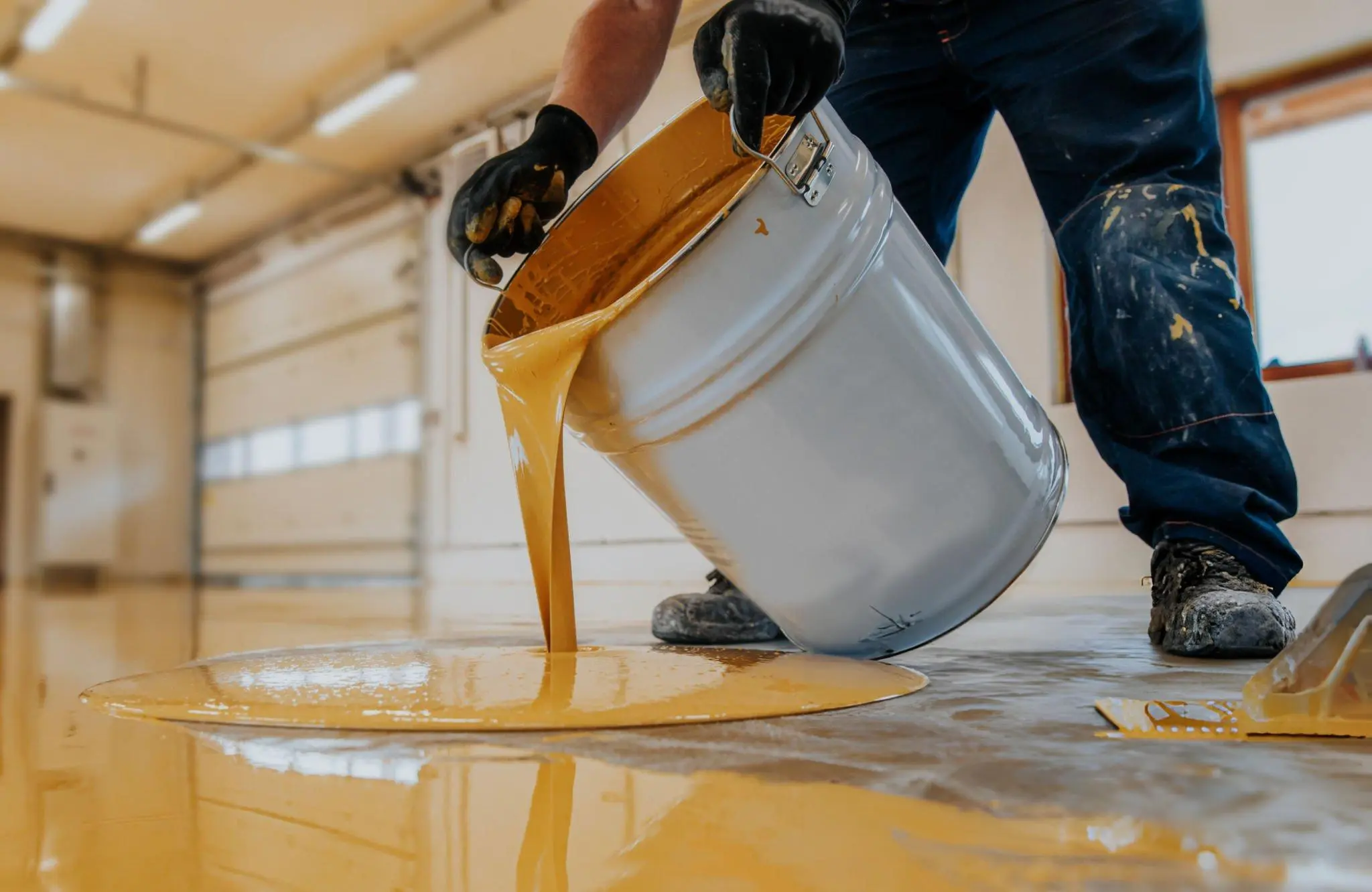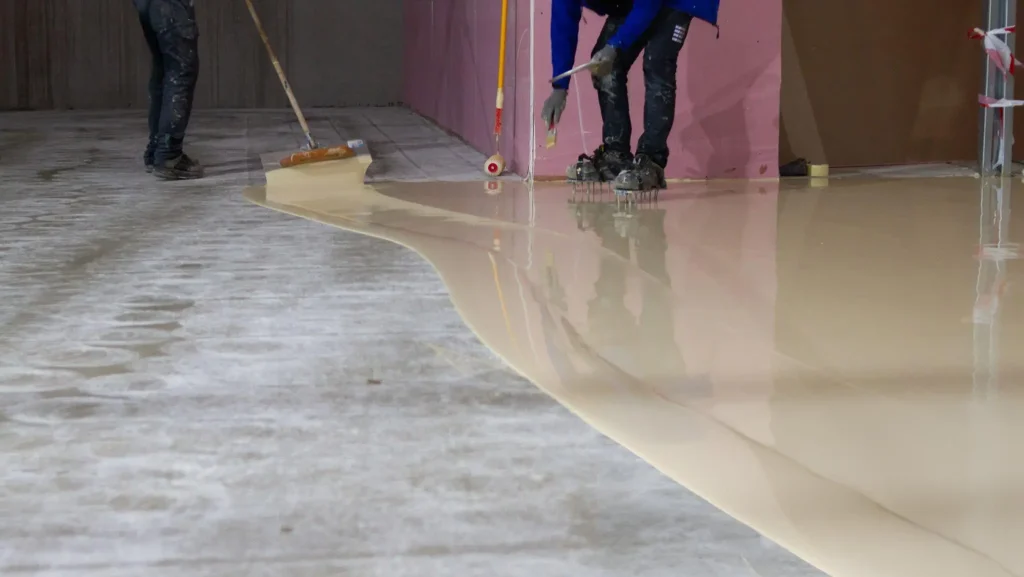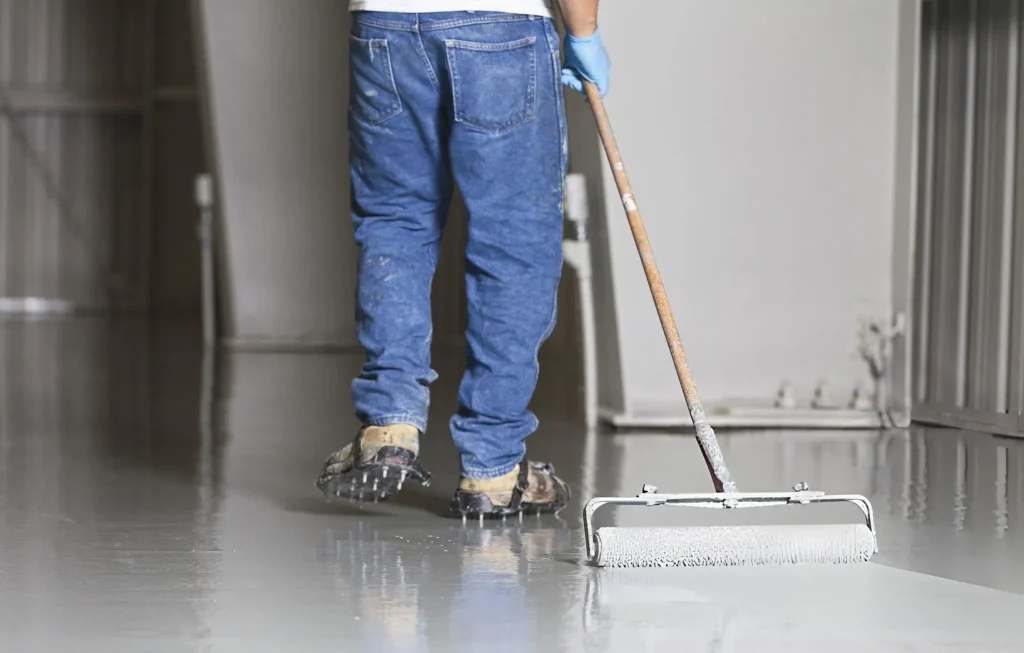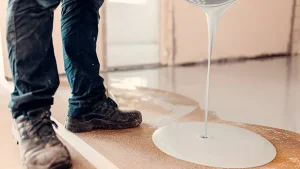
Epoxy resin is a staple in many industries for its sticky strength and long-lasting nature, but there are safety concerns to be aware of. When using epoxy resin, you need to grasp the health risks it can pose. However, is epoxy resin toxic?
Both the resin and the hardener, which combine to form the final product, can trigger acute contact dermatitis. This condition results in serious skin irritation that usually fades once you stop touching the irritant.
Knowing these risks is key for the safe handling and use of epoxy resin in any project.
Is Epoxy Resin Dangerous To Work With?
Working with epoxy resin is not all fun. It can seriously mess with your health, similar to considerations when dealing with epoxy floor coating.
We are talking about skin irritation, allergic reactions, and breathing problems. If it touches your skin, you might end up with dermatitis.
Breathe in those fumes too often, and you are looking at long-term respiratory issues. To keep yourself safe, gear up! Gloves, safety goggles, and a NIOSH-approved respirator are a must. And remember ventilation. Open windows and use fans to keep the air moving.
Why Is Epoxy Dangerous?
Liquid resin has nasty carcinogens and poisons that can irritate your skin. When it cures, it releases fumes that you might breathe in.

These fumes can mess with your nose, throat, and lungs. Breathing in too much of this stuff can cause inflammation and irritation in these areas. If you keep inhaling these fumes, it can lead to sensitization and asthma.
Once it is fully cured, epoxy resin is harmless and non-toxic.
Potential Hazards Of Epoxy Resin
The following are the hazards of epoxy resin:
1. Skin Irritation And Allergies
Be cautious with liquid resin and hardeners; they have stuff that should not touch your skin.
Direct contact with these raw components might irritate your skin or trigger allergies, much like other daily substances, including those used in epoxy flooring Kelowna BC.
Use epoxy resin only in well-ventilated areas, and always wear protective gloves.
Did you know that about 8-33% of people are sensitive to chemicals like these?
2. Respiratory Issues
Breathing in epoxy paint dangerous vapours can mess with your respiratory system and cause allergies. Normally, at room temperature, these vapours are not super concentrated.
But if you are already sensitive to epoxy, even low levels can set off an allergic reaction.
A study with thirty-four employees at a ski manufacturing plant, including twenty-five workers dealing with an epoxy resin system with the hardener 3-DMAPA, used a respiratory questionnaire and lung function tests to check things out.
They took maximum expiratory flow-volume curves on Mondays and Thursdays, before and after shifts. They measured FVC, FEV1.0, MEF50%, and MEF25%. The environmental amine levels ranged from 0.41 to 1.38 ppm.
3. Eye Hazards
Allergic reactions to epoxy can cause skin irritation or breathing problems. Skin irritation is much more common. It often looks like a poison ivy rash, with swelling, itching, and red eyes.
Yesterday, I had to go to the ER because my eyelids were so swollen I could barely open them, and they itch like crazy. My eyes were fine; it was just the eyelids. Today, the swelling has moved down my face, now under my eyes.
The ER could not pinpoint the cause but ruled out bacterial and viral infections, as well as shingles (I did not know you could get that in your eyes!).
It all started when I was sanding a tabletop I made with epoxy on the porch without wearing protective glasses.
Safety Measurements While Working With Epoxy Resin
The following are the safety measurements while working with Epoxy Resin:
1. Work In A Well-ventilated Area
Epoxy is a trickster. Its fumes can really mess with your breathing and sting your eyes. So, always pick a spot with lots of fresh air flowing, much like you would consider when evaluating the epoxy flooring price. Think open windows (unless it is freezing out!) or at least a fan to blow those smells away.
From the moment you crack open that resin until it’s fully cured, keep the ventilation game strong. Did you know? Poor ventilation can increase indoor pollution by up to 100%.
2. Wear Proper Personal Protective Equipment
Grab your goggles, safety glasses, gloves, respirator, and suitable protective clothing for your project.
At the very least, wear gloves, eye protection, and protective clothing when working with epoxy.
To shield yourself from epoxy vapours, use a respirator with an organic vapour cartridge. If epoxy resin gets on your skin, wash it off IMMEDIATELY with hot, soapy water until it’s no longer sticky. You might need to scrub and repeat this process a few times.
3. Minimize Skin Contact
Epoxy resin contains chemicals that, upon prolonged exposure, can cause skin irritation, allergic reactions, and other health issues. Components such as epoxide compounds and amines used as hardeners can be.

Always use gloves made of nitrile or butyl rubber to protect your hands. Avoid latex gloves as they do not provide adequate protection. Long-sleeved shirts and long pants are recommended to minimize skin exposure.
For added protection, apply barrier creams on exposed skin areas before handling epoxy. These creams provide an extra layer that can prevent resin from making direct contact with the skin.
4. Clean Up Spills Promptly
If not cleaned up immediately, spills of epoxy resin can pose slip hazards, release harmful fumes, and increase the risk of skin contact and environmental contamination, similar to concerns managed by epoxy flooring services in British Columbia.
To contain the spill, use materials like sand, clay, or commercial absorbents. Avoid using sawdust or other fine cellulose materials with hardeners, as they can spontaneously combust
Is Epoxy Resin Dangerous FAQs
What Happens If Resin Gets On Your Skin?
Resin can cause skin irritation, leading to redness, swelling, flaking, and itching. Immediate washing is crucial to prevent these symptoms.
Is The Smell Of Epoxy Dangerous?
Epoxy fumes can be harmful, but with proper ventilation, it is generally safe to use in most homes and garages. Always ensure good airflow to minimize risks.
Conclusion
Epoxy resin is pretty handy, but it comes with its risks. Touch it too much, and your skin might throw a fit, or worse, you could develop an allergy. Breathing in its fumes? Not great for your lungs.
Always work where there is good airflow, suit up with the right gear, and mop up spills right away. Stick to these steps, and you will avoid health issues while making the most of epoxy resin in your projects.



